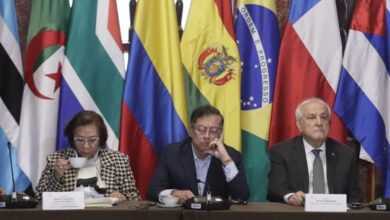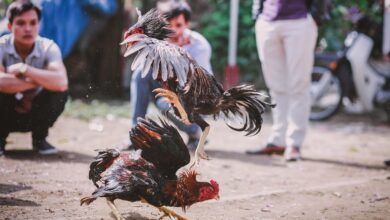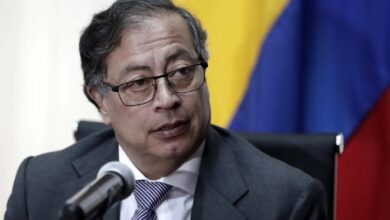“The Kings of the World”: On Growing Up in Friendship
"The Kings of the World", by Colombian director Laura Mora, won the Golden Shell award at the San Sebastian International Film Festival. Now, it's on some Latin American billboards. This is our review.

Photo: YT-Moon City
LatinAmerican Post | Staff
Listen to this article
Leer en español: “Los reyes del mundo”: Sobre crecer en amistad
In “The Kings of the World”, Rá, a nineteen-year-old boy, receives some good news: the government recognizes that, under the land restitution program, he owns a small plot left to him by his late grandmother, who had been displaced by the paramilitaries in the midst of the armed conflict. Rá lives in Medellín and with his friends they make up a group that constitutes his only family. After receiving the letter from the government, Rá gathers the papers that prove his inheritance, hugs his friends, takes his bicycle, packs his backpack and sets out with them on the journey to the promised land.
Described like this, “The Kings of the World” seems like one more Colombian film about the late consequences of the armed conflict, the dispossession of land, and unconstitutional mining. And although that is the framework and the knot of the story, Laura Mora's film supports her characters and honors this group of friends by not reducing their lives to misfortune. Instead, she exalts them so that in their greatness they speak to us about growing in friendship. The film, which tells the story of Rá, Culebro, Sere, Winny and Nano, won the Golden Shell, the main award at the San Sebastián International Film Festival. Its director, Laura Mora, is also known for her previous feature film, "Matar a Jesús."
Inherit the World
We usually call heirs to young people whose parents will leave emporiums. Rá, however, is a boy from the streets of Medellín who knows he is the heir to his grandmother's estate. It's not a big piece of land, but it's his. He has faith, he tells his friends. Land restitution, in addition to its practical effect: returning the land to its original owners, has another meaning: it is an acknowledgment of the damage inflicted. When Rá receives the letter confirming that the property is his, there is a first reaffirmation of his identity: he is the grandson of a woman displaced by violence, and he owns what she has inherited from him.
The restitution of land is, therefore, the reestablishment of an order. This order has to do with the origin. Then, Rá and his group of friends begins the journey to what is suggested to be the place of his birth. The trip they undertake is not only a return trip, but it is also the reverse trip that their grandmother had to make and that hundreds of people displaced by violence did: this is a journey that goes from the city to the countryside.
Although the members of the group of friends are all teenagers, they are very clear about the life they want to lead. Everyone knows how to clearly articulate their wishes and desires: they want to be free. There is a truth that everyone has understood and that is sometimes communicated to us viewers in the whispers of the voice-over, but that they never tell each other. There isn't much discussion every time they hit a bump in their journey, they all know what to do, they know their destination. They also share this truth with those who welcome and protect them during their journey. Twice, in moments of helplessness, they enter silently and without asking permission into a house where they are welcome. Hospitality, then, is part of this truth of those who have been dispossessed.
Also read: Laura Mora: Who is the winner of the Golden Shell in San Sebastian for "The Kings of the World"?
A Growing Up Movie
While the journey of the friends is a journey to the origin, our five heroes grow along the way. Many have categorized it as a road movie, but “The Kings of the World” also fits into the genre of coming of age or growing up movie. We have already seen many Colombian productions that deal with the conflict with child protagonists. Many of them, to represent their pain and misfortune, try to represent like adults their protagonists as a denunciation of the weight that these boys must carry from an early age. Unlike these, “The Kings of the World” does not reduce the lives of its characters to violence, it lets them be teenagers.
The five protagonists run, dance, play and damage things. The vandalism that they sometimes practice is also the reestablishment of a primary order: they break the lights of the street lighting to return its darkness to the night and free some cows from a lot to run through the field. This, which in principle is a game, teaches them what will later be the manifesto under which they aspire to live: “all men will be equal, no one will have more than anyone else, no one will be more than anyone else, everyone will run free and wild”.
Of course that “The Kings of the World” although it gives moments of enjoyment to its characters, does not fall into the sentimentality of the moral of seeing the good side of misfortune. As the miles go by, the boys meet cruelty and steel themselves to survive. This does not mean they renounce who they are, but they do learn that Rá has not only inherited the land of her grandmother, but also some violence of which she was a victim. And then they practice one last great act of vandalism, but this time as revenge and not as a party.
A Fantastic Movie
I fear that “The Kings of the World” will be categorized as another film of crude Colombian realism, so I will say something more about the genres in which it fits: the fantastic genre. This is another way in which the story allows the lives of the characters to go beyond the painful facts, and with this grows. From the beginning, the fog on the road and the recurring appearance of a white horse that sometimes acts as a guardian angel (or of death?) cover the film with magic.
The bearer of the news that begins the trip, in Medellín, is a woman who is called “black.” This ambiguity of the sex of some characters also contributes to the fantasy that sometimes embraces the five boys. The first place they stay is a house of sex workers who, in fact, dress in fantasy, that is, cheap jewelry and sequins. The house is illuminated with colors contrary to the colors of the jungle and the mountains, the lights are purple, blue and fuchsia, which confirms that the women's party is outside the world from which they come.
Towards the end, the fantastic manifests itself in other ways, and the heroes will run into apparitions and ghosts that remind us of the characters in Pedro Páramo. These apparitions give guidance and welcome, as the women of the brothel have done in a maternal way before. The fantasy, then, opposes the realism that we have already seen so much in Colombian cinema and also offers the possibility of salvation. “The kings of the world”, then, redeems its characters with its title and by meeting them with magic, it magnifies them and us.




